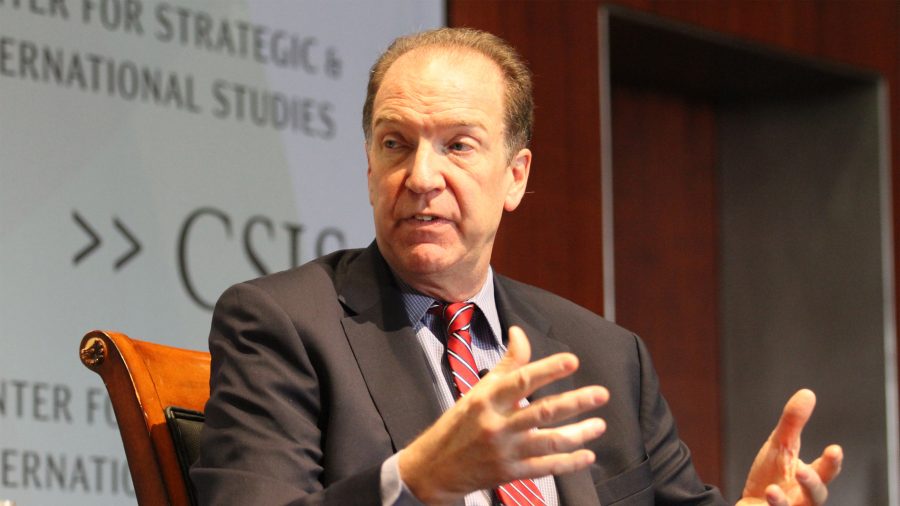According to the recent World Bank report, an estimated 1 billion students in developing nations may be out of school due to the looming second wave of the coronavirus pandemic.
World Bank President, David Malpass, on Wednesday, expressed concerns over the consequences of the coronavirus pandemic on school-age children in developing countries, especially with the spikes in infections currently being recorded in most nations.
READ: World Bank President says debt cancellation needed to help poorest countries
In an interview on CNBC’s “Closing Bell,” Malpass said there are also educational challenges in wealthy countries like the U.S. as schools shift to virtual classes that potentially keep parents from returning to work. However, he said his worries for other nations are more pronounced.
According to the World Bank boss, “The learning goes backward. That’s a particular problem in the developing world.
READ: Fidelity Bank to raise N50 billion in bonds in Q4 to refinance existing debts
“We think there are …1 billion children out of school in the developing world waiting, really, for the recovery to take hold. So, if there’s the second wave, that’s a concern.”
Backstory
Malpass is not the first to sound the alarm about the detrimental impact of the pandemic on children. Last month, the United Nations warned that at least 24 million students across the world could drop out of school as a consequence of the COVID-19 outbreak.
READ: Why Nigeria’s external reserves is stuck at $35 billion
What they are saying
According to Henrietta Fore, Executive Director of the U.N.’s Children’s Fund, “At the height of COVID-19, 192 countries shuttered schools, leaving 1.6 billion students without in-person learning. At least 24 million children are projected to drop out of school due to COVID-19.”
Furthermore, she said, “The reopening of schools has become a hot-button issue, particularly in the U.S., where President Donald Trump has pushed to reopen schools regardless of how widely the virus is spreading in the community.”
READ: Roma on the verge of signing new deal with New Balance after premature termination with Nike
While the pandemic-induced recession has eased in wealthy countries, Malpass said that has not been an experience shared across the world.
“Apart from China, many of the developing countries are worse than had been earlier expected, so it’s this unequal process of recovery going on.”
READ: 150 million to fall into extreme poverty by 2021 – World Bank
According to Malpass, due to high-population, poor countries such as India, Ethiopia, and Nigeria are especially facing “grave challenges”. He also referenced Zambia, whose government has been requesting delays to its bond payments, even up till this week.
Explore Data on the Nairametrics News Website
According to a 10-page document that outlines guidelines to reopen and operate schools during the pandemic, jointly published by UNESCO, UNICEF, and the WHO, “It is of utmost importance that education and health work closely together to ensure that schools reopen safely as a matter of priority. When we deal with education, the decision that we make today will impact tomorrow’s world.”



















